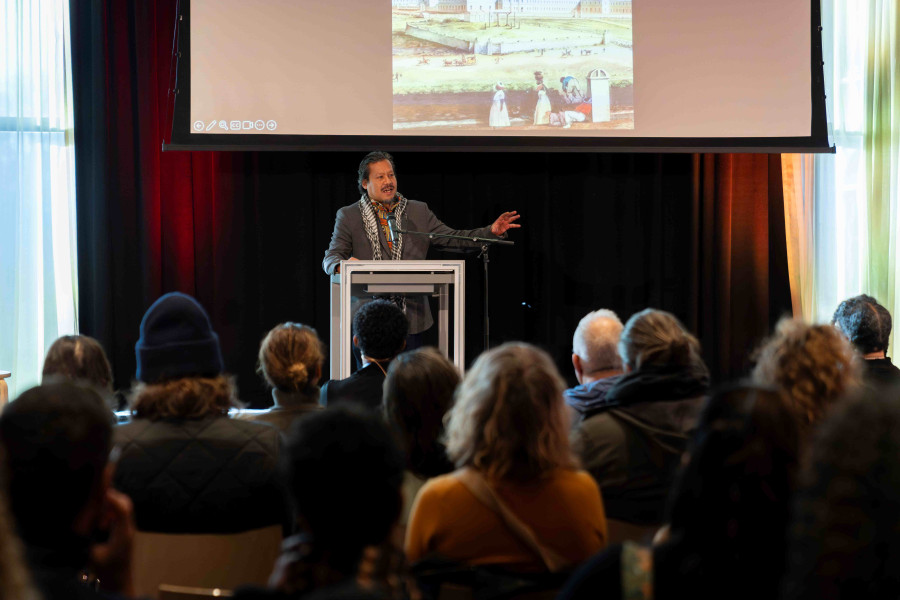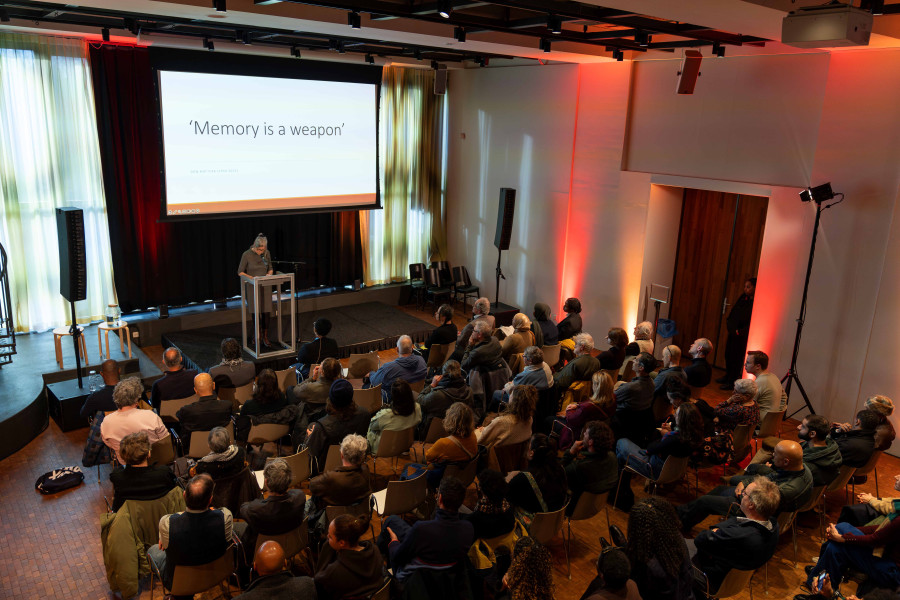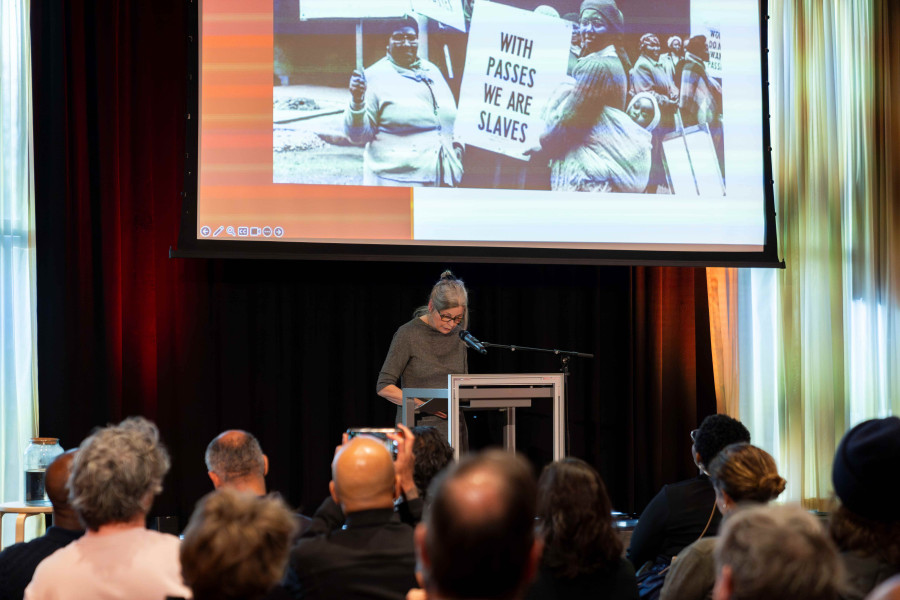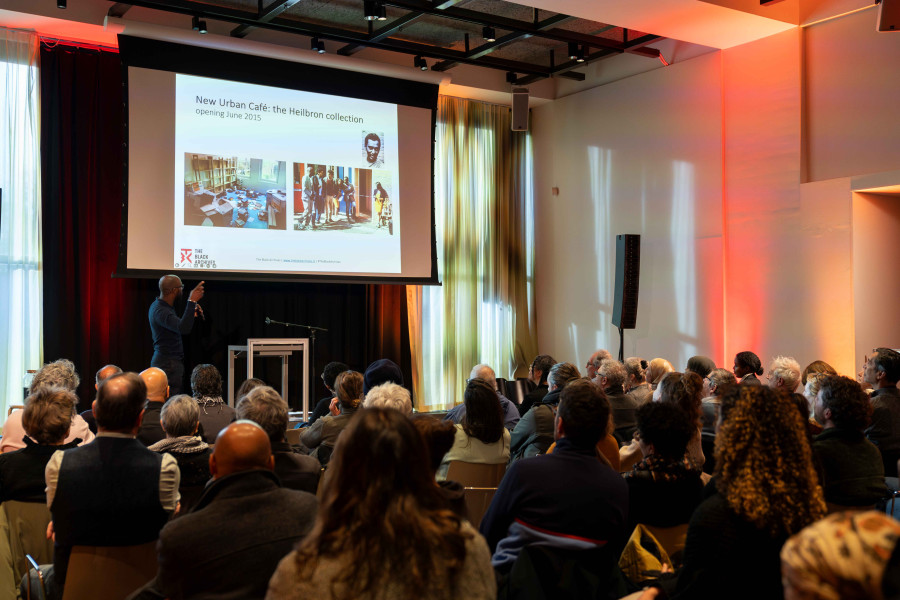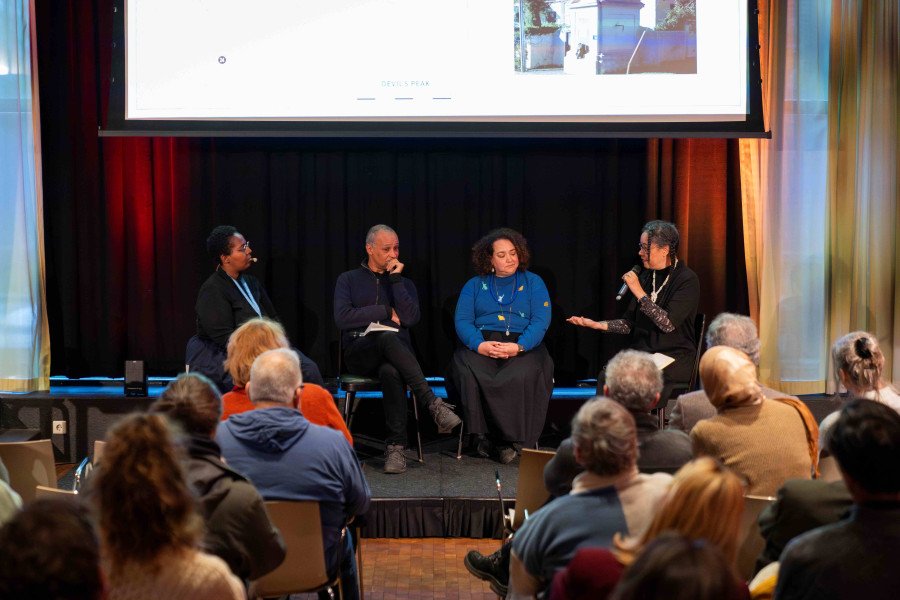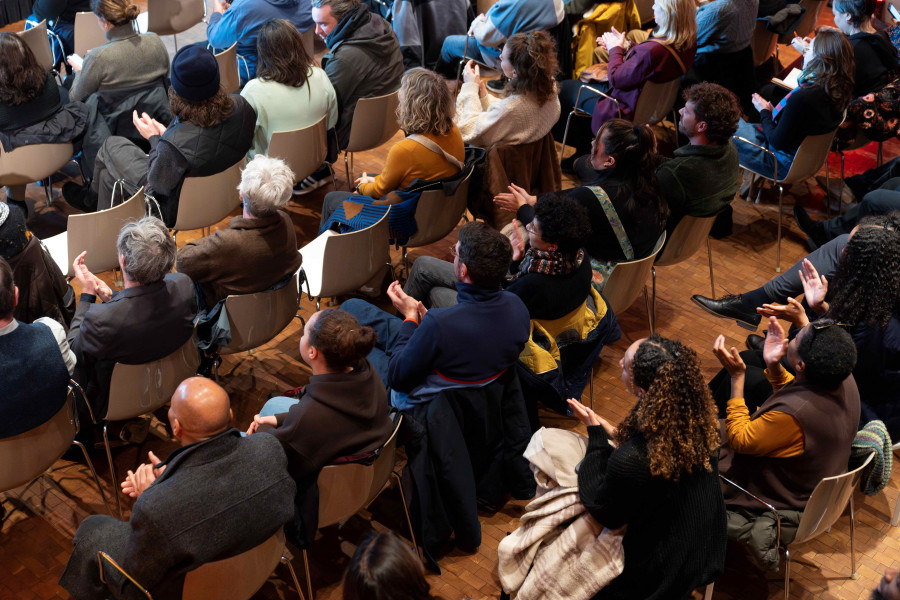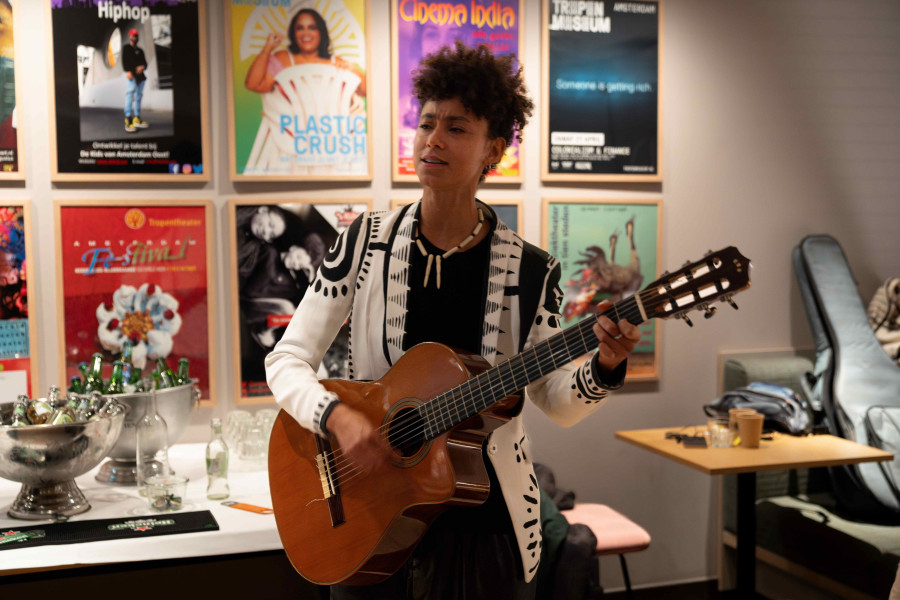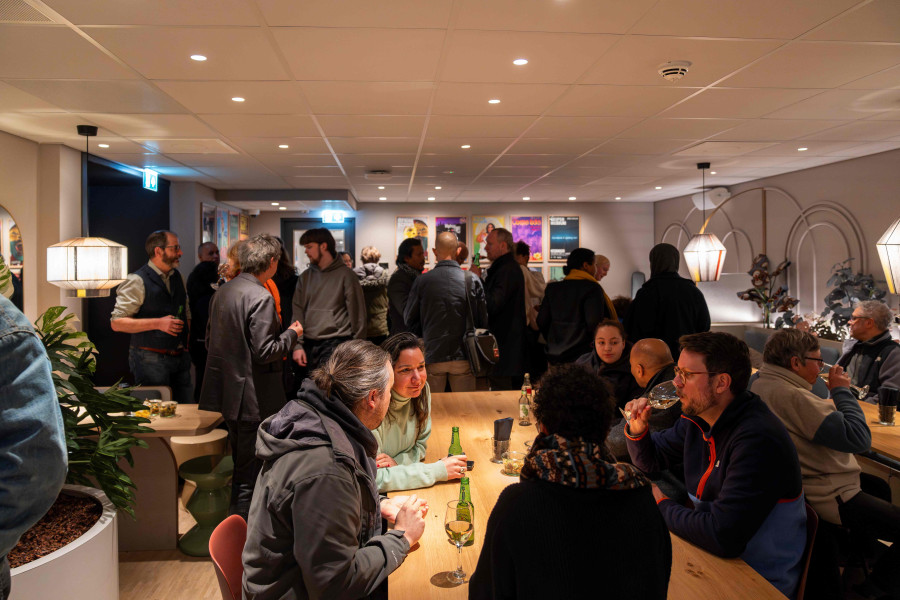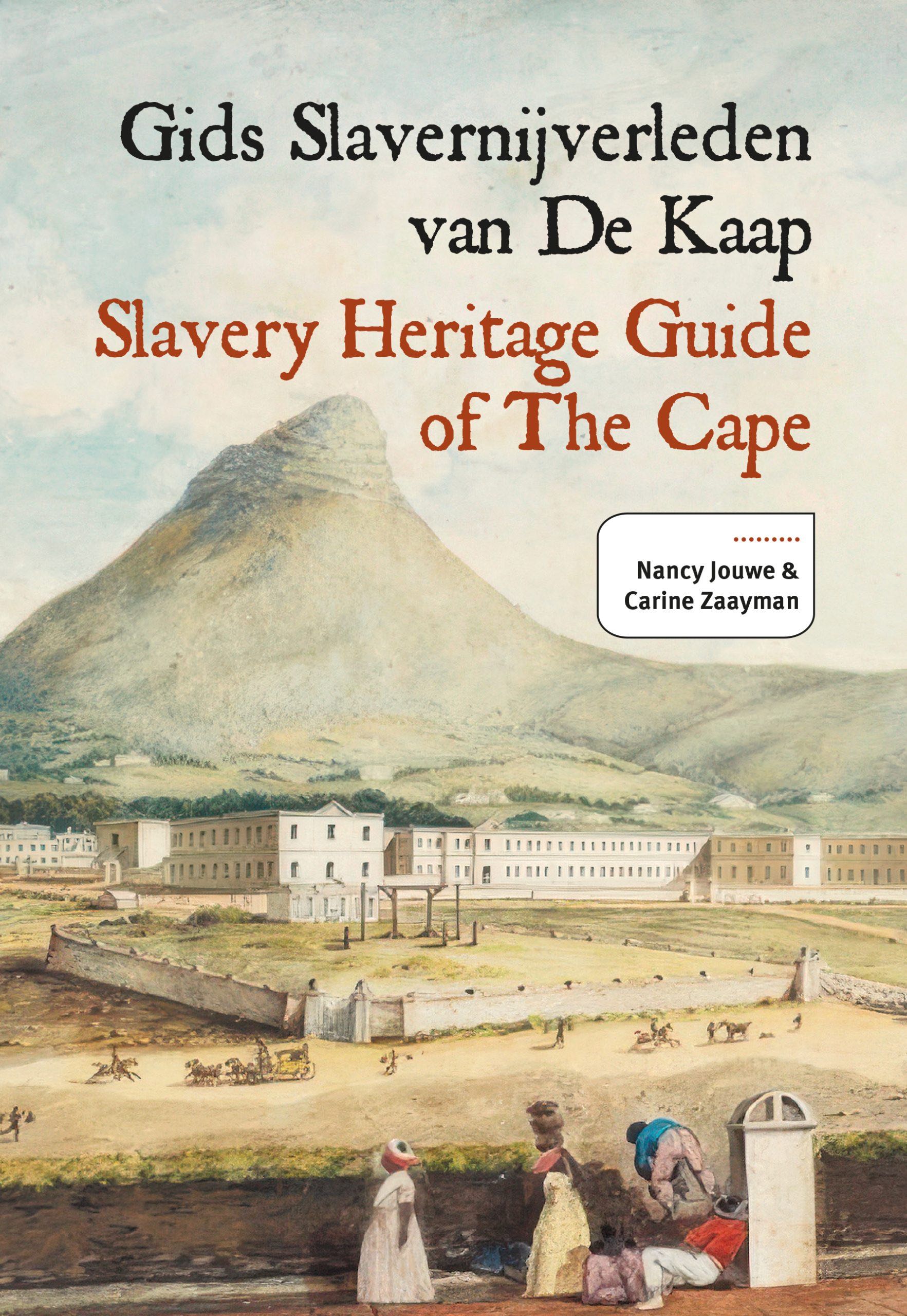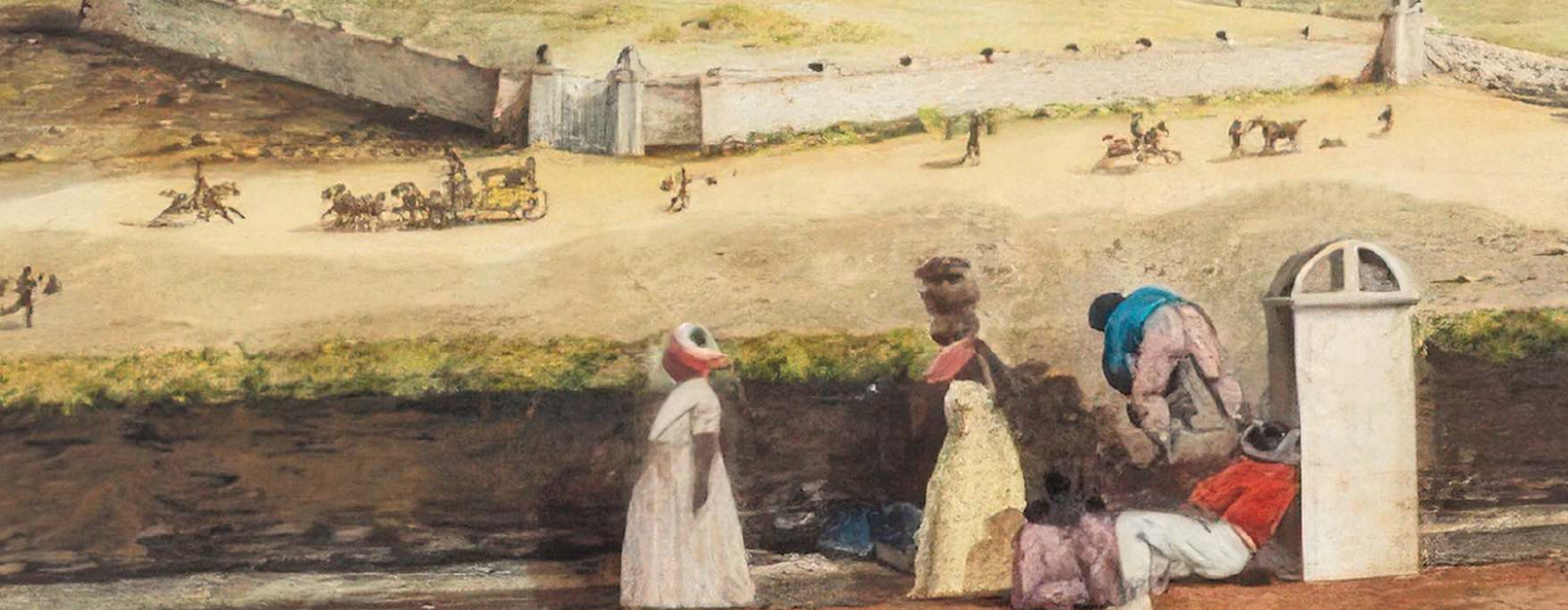
Book Launch | 26 January 2025 | 14.00 - 16.30 | Studio, Wereldmuseum Amsterdam
Nancy Jouwe and Carine Zaayman’s publication, Gids Slavernijverleden van De Kaap/Slavery Heritage Guide of The Cape (2025), is the latest instalment in the Mapping Slavery series on sites impacted by Dutch slavery. An excerpt of the book can be found here. With the book launch we want to use the moment of its publication as an opportunity to bring into conversation the history and afterlives of Dutch colonialism in the Cape, but also how it shapes contemporary life in both the Cape and the Netherlands, as well as how it forms part of global North-South relations.
Particpating in the event are: Tauriq Jenkins, Guno Jones, Marjan Boelsma, Mitchell Esajas, Nancy Jouwe and Carine Zaayman. The event will be moderated by Hodan Warsame. This event will be mainly in English, but questions can be posed in Dutch. Join us after the event for drinks and a musical performance by Shishani Vranckx. There will be an opportunity to buy copies of the book at the museum shop and to have copies signed by the authors.
Program
| 14.00 | Doors Open |
| 14.15 | Welcome and introduction by Hodan Warsame |
| 14.20 | Presentation by Tauriq Jenkins |
| 14.45 | Presentation by Marjan Boelsma |
| 15.00 | Presentation by Mitchell Esajas |
| 15.20 | Panel with Guno Jones, Nancy Jouwe and Carine Zaayman, moderated by Hodan Warsame |
| 15.45 | End of event with complimentary drinks and a musical performance by Shishani Vranckx in the Museum Cafe. |
More on the event and publication
In present-day South Africa, the focus within political and cultural institutions is primarily on grappling with the effects of apartheid. Even though apartheid formally ended in 1994, it continues to fundamentally shape South African society, as can be noted in the inequality that still determines so many aspects of people’s lives, including land ownership, access to employment and civil infrastructure to name but a few. Due to this centrality of apartheid’s legacy, there is perhaps less of a collective appetite to engage with pasts that go further back in history. Moreover, the Dutch colonial influence is often imagined to be limited to what is today the province of the Western Cape. And yet, to understand and dismantle the thinking that made apartheid possible, it is necessary to situate it in relation to the historical trajectories that brought it into being. Notions of racial hierarchies, the privileging of trade and the exploitative labour that enables it all stem from the world that colonialism brought into being. If working towards a more just and equal South Africa entails undoing apartheid, it also means addressing its roots.
In the Netherlands, mainstream attention for the Dutch role in colonial slavery, has been growing in the last five to ten years. The Netherlands observed a year of commemorating slavery from mid 2023 until July 1, 2024. Such a focus boosted awareness of the topic to the attention of a larger audience tremendously. Well into the twenty-first century, most Dutch people still consider slavery as belonging to American and European history, rather than Dutch history. Even as attention to slavery histories increased, the focus was on the trans-Atlantic slave trade. Notably, the Dutch links with Surinam and the Dutch Caribbean were given precedence, in part due to a strong presence of a Dutch Afro-Caribbean memory community in The Netherlands. Meanwhile, until recently, very little was known to the general public about Dutch Indian Ocean slavery. However, the history of slavery in the Cape is especially interesting because it involves both a geographical tipping point as well as exemplifying how the global colonial order was organized. In the case of the Cape, it meant that Dutch practices of trans-Atlantic and Indian Ocean slavery met each other and even intermingled.
By mapping these sites, we hope to make more tangible the stories of enslaved people and the brutal practice of slavery to those who live and work in the city, as well as make it apparent how their everyday lives intersect with those of people from the past. Furthermore, through mapping, one can begin to apprehend just how pervasive slavery was at the Cape: it was not limited to the Slave Lodge or the Castle but shadows the entire Western Cape province and in its afterlives, South Africa as a whole. The lack of presence of this history in the Dutch education system and the absence of a memory community in the Netherlands pertaining to Indian ocean slavery in general and in the Cape in particular, create a collective lack of insight and knowledge, of amnesia. Our hope is to interrupt this hiatus, and help boost our collective understanding.
About the Speakers
Tauriq Jenkins is a human rights activist, artist and academic. He is the convenor of Save our Sacred Lands, an intersectional campaign that aims to protect heritage under threat with Indigenous, First Nations, including San and Khoi communities. He is a member of the Goringhaicona Khoi Khoin Traditional Indigenous Council. A founding director of the Independent Theatre Movement of South Africa, and Shakespeare In Prison South Africa, Tauriq holds an MFA from Columbia University, and was an International Foreign Policy Fellow at the School of International Public Affairs, at Columbia University.
Tauriq has served as a Section 11 Human Rights Monitor for the South African Human Rights Commission. He is an accredited Human Rights Defender for Frontline Defenders, The International Foundation for the Protection of Human Rights Defenders, which has Special Consultative Status with ECOSOC of the UN.
He is part of 'Shakespeare To Gaza' a theatre collaboration with local South African artists and Ashtar Theatre
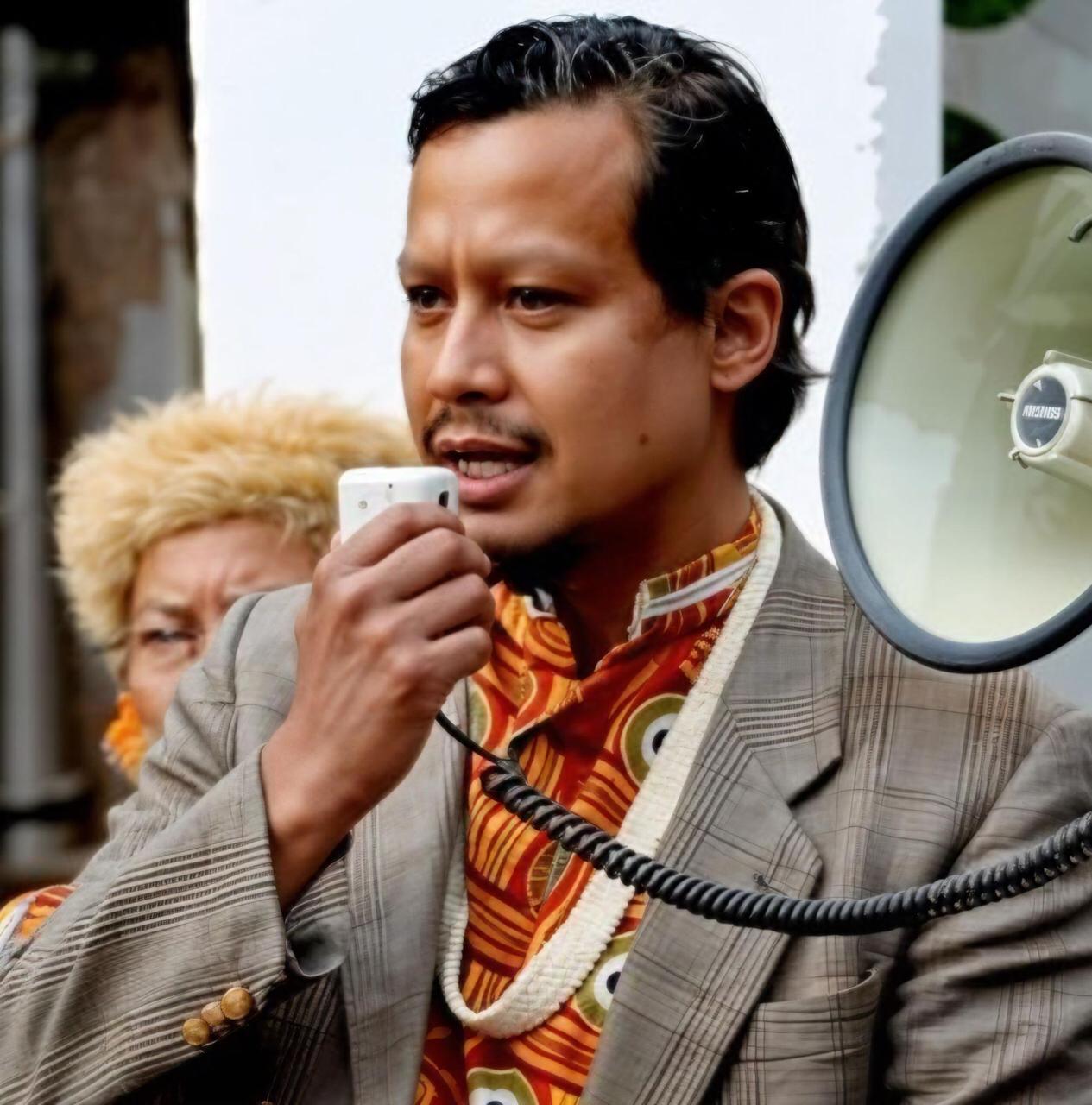
Dr. Guno Jones is professor of the Anton de Kom Chair in the History of Colonialism and Slavery and their contemporary Social, Cultural and Legal Impact. His research is interdisciplinary in nature. Currently, he is involved, as projectleader, in an interfaculty VU research project on the legal history of Dutch slavery (Juridische Slavernijgeschiedenis). He also participates in a KITLV research project on the role of the royal Dutch family in colonial history (Het Huis van Oranje-Nassau en de koloniale geschiedenis). Previously, he (mainly) held research positions at Leiden University, the University of Amsterdam and Vrije Universiteit Amsterdam. He lectured at Vrije Universiteit Amsterdam (Faculty of Law, Faculty of Social Sciences, Faculty of Humanities), University of Amsterdam (Faculty of Humanities) and the Institute for Graduate Studies and Research at the Anton de Kom University (Paramaribo).
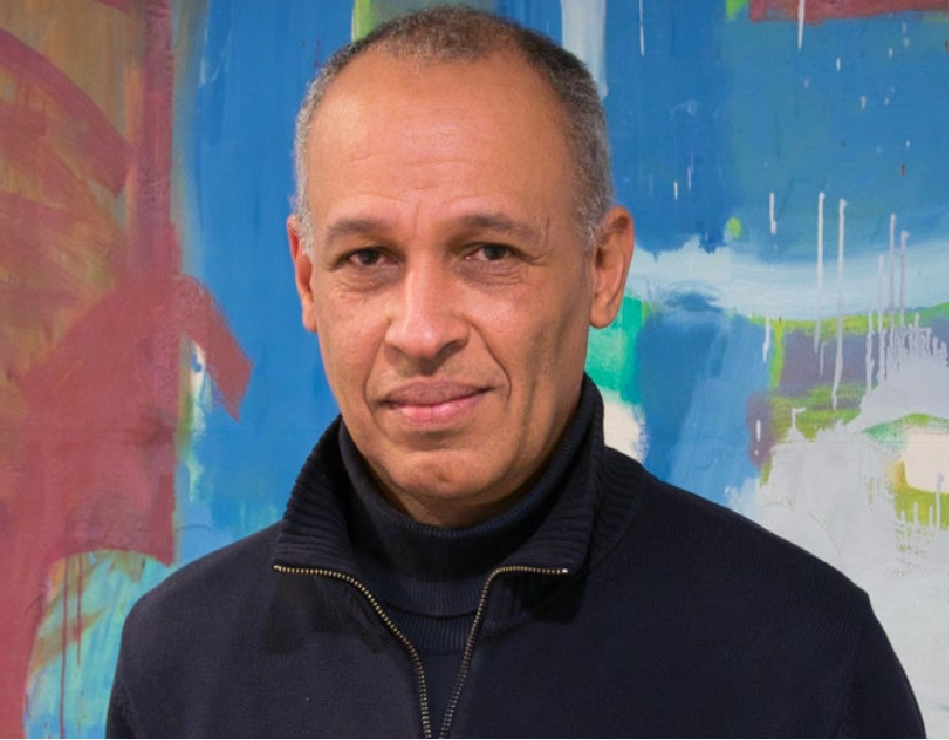
Carine Zaayman (she/her) is an artist, curator and scholar committed to critical engagement with colonial archives and collections, specifically those holding strands of Khoekhoe pasts in South Africa. She is a researcher at the Research Center for Material Culture. The main focus of her curatorial work is in the project Under Cover of Darkness, which included an exhibition staged at the Iziko Slave Lodge in Cape Town, that explored the lives of women in servitude in the early Cape Colony. Zaayman obtained her PhD in Fine Art (Philosophy) at the University of Cape Town.
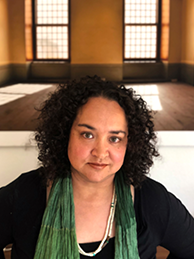
Hodan Warsame (she/they) does practice-based experimentation at the RCMC to develop methodologies for the museum to engage and collaborate with historically marginalized groups. In collaboration with makers and practitioners Hodan develops online and offline public programming, such as the podcast Langdradig in connection to the semi-permanent exhibition Our Colonial Inheritance, the Last Room gallery space of the Hair Power exhibition in Wereldmuseum Rotterdam and the 1873 project: an on-going research project on the legacies of indentured labour. The latter two projects she co-developed with curator of South Asia and Globalization, Dr. Priya Swamy. In 2024 they started an ongoing series of somatic and creative workshops for adults aimed at offering visitors opportunities for more holistic engagement with the themes the Wereldmuseum foregrounds, such as racial identity and belonging.

